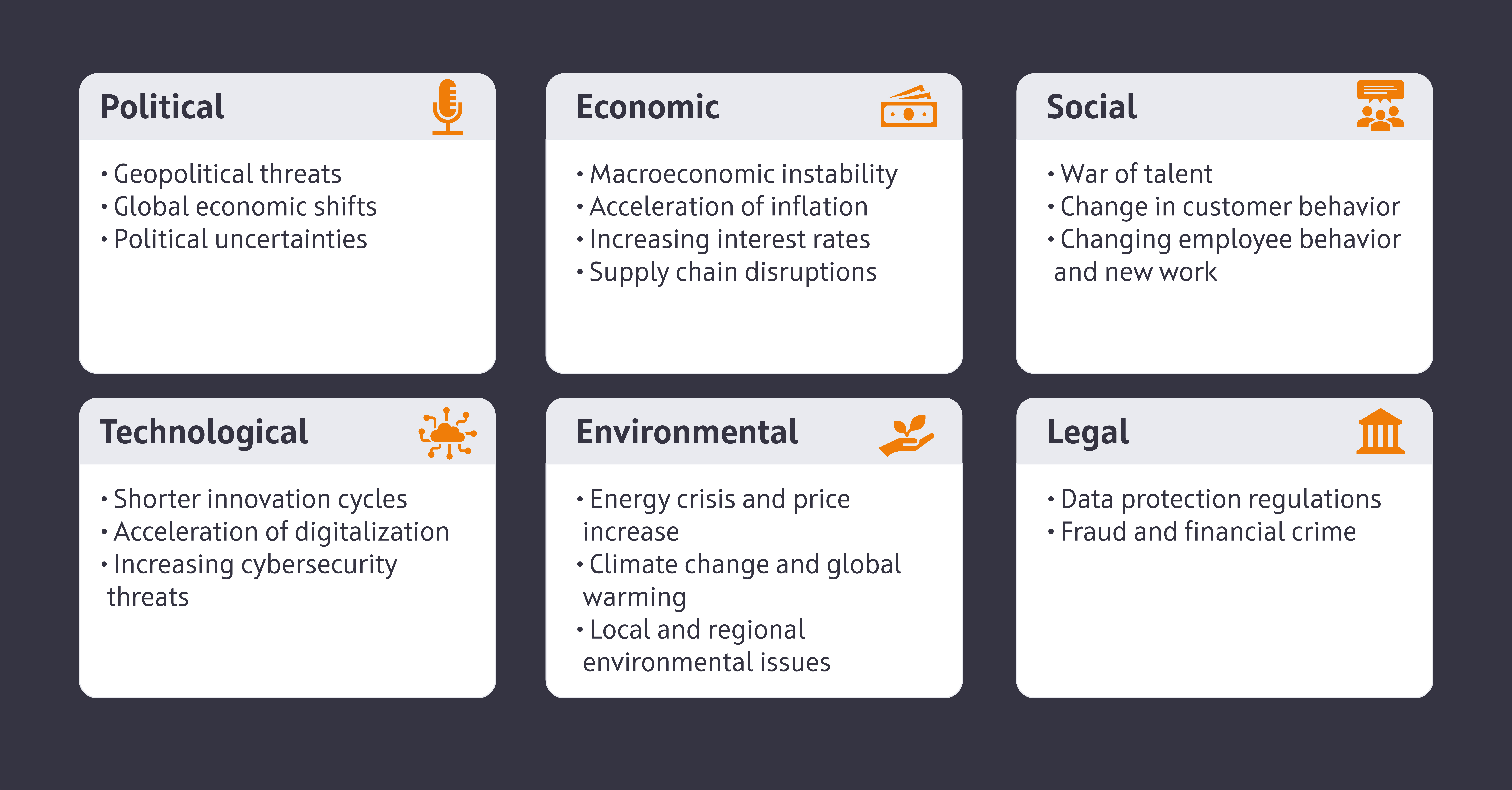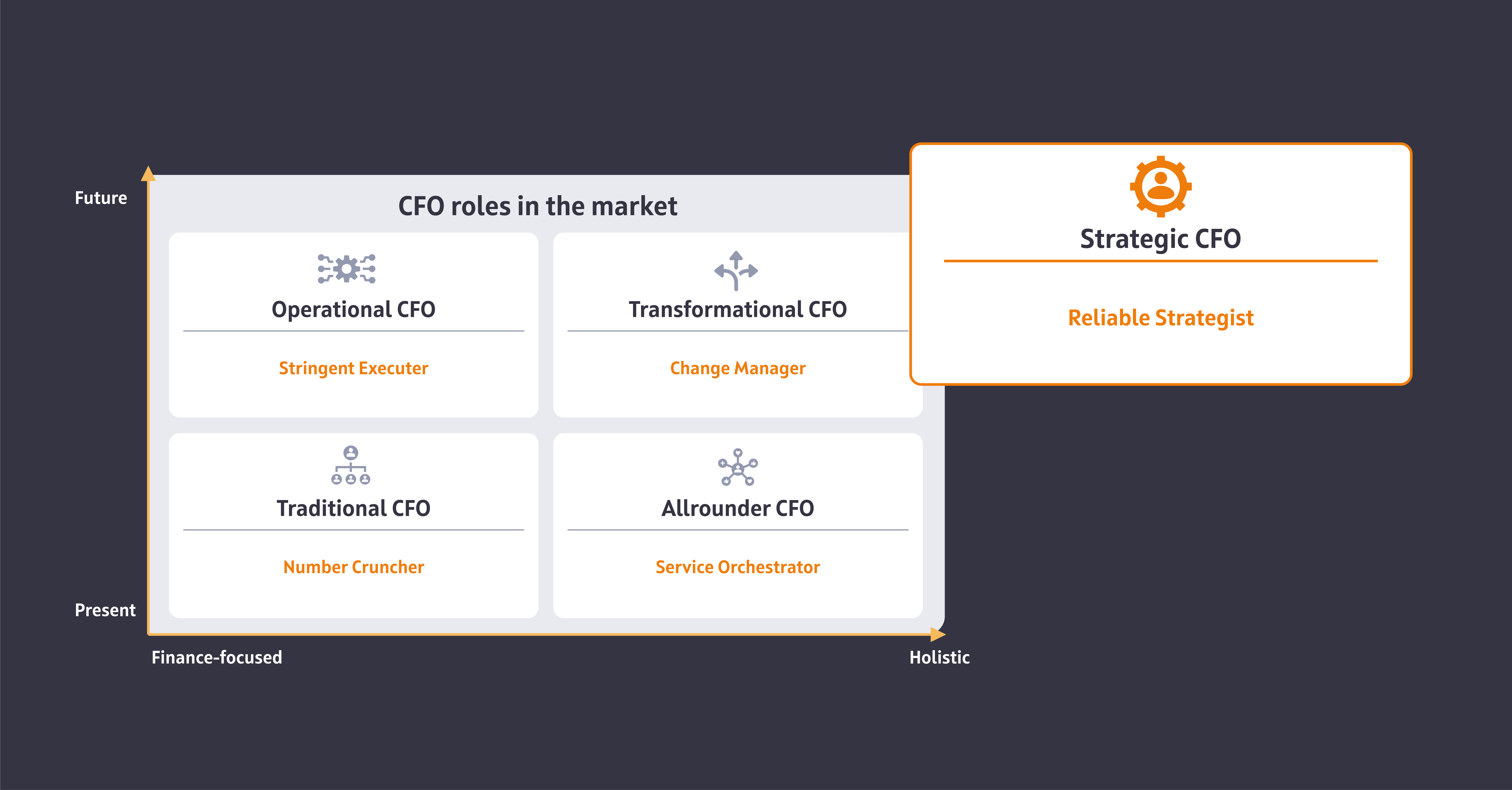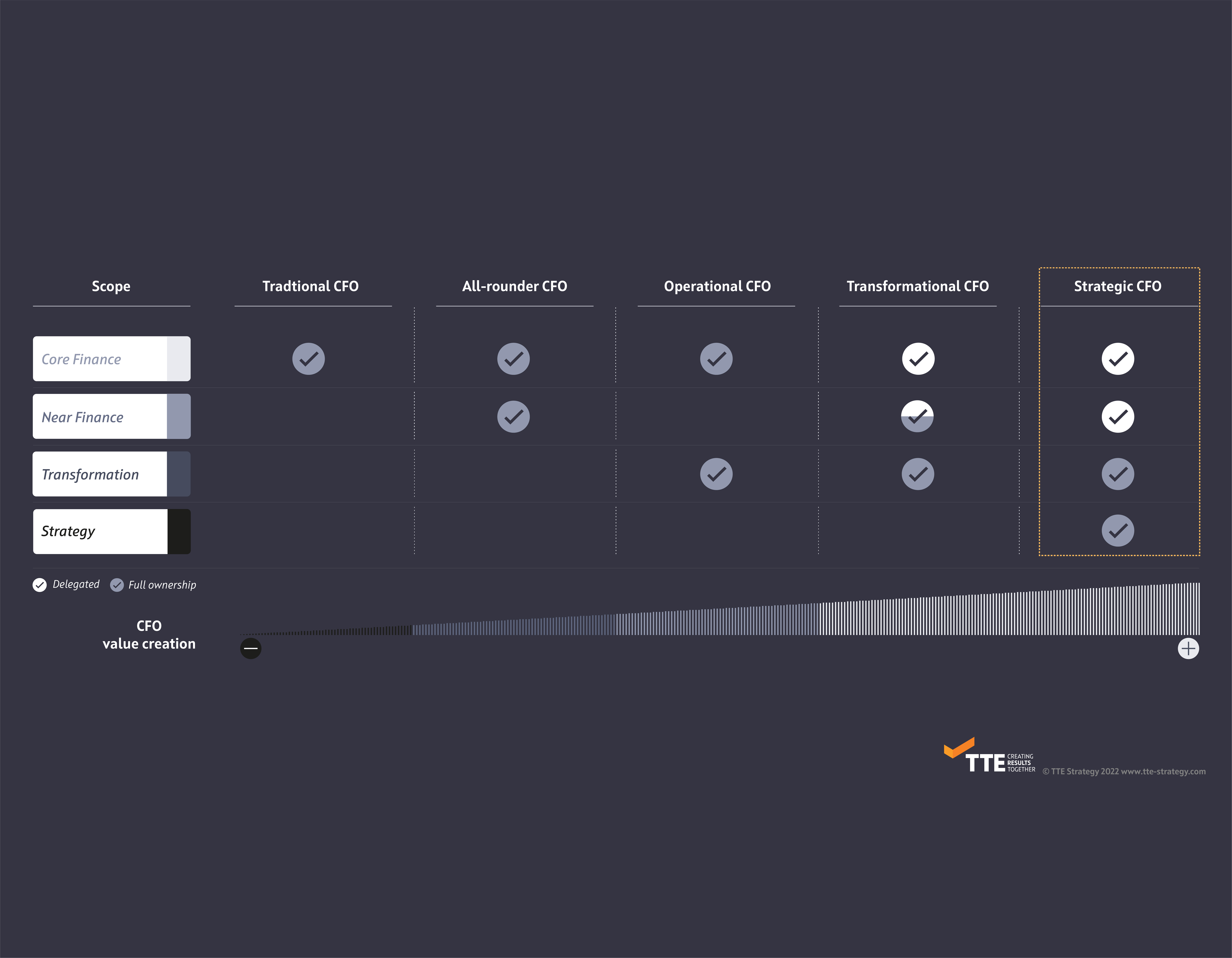
In a world that is constantly changing, companies need to be proactive and responsive to ensure competitiveness in the face of macroeconomic uncertainty, geopolitical crises, shorter product life cycles, and ongoing competition for the best talent. But it is not just companies as a whole that are obliged to anticipate developments or adapt to them. In particular, CFOs, as guardians of the company’s results, should be dedicated to shaping strategic and transformative aspects within the company.

The financial management of the company is one of the core tasks of the CFO. In a managerial role, CFOs protect the company’s assets. The traditional tasks of finance departments are efficiently and effectively performed in an operational capacity. As a copilot, the CFO supports important business decisions from a financial perspective. But how can CFOs expand their role to include a strategic perspective and contribute to the creation of value, which is important for the success of the company?
At TTE Strategy, we want to provide an answer to this question with our approach and include this strategic perspective in the definition of the future understanding of the CFO.
The CFO in changing times
The role of the CFO is undergoing a decisive reorientation. The triggers for this reorientation are multifaceted: processes in finance departments are increasingly being digitalized, and company organizations and processes are in a dynamic environment with ever-shorter innovation cycles. Larger amounts of data allow companies to gain new insights, based on which forecasts and fact-based decisions can be made. However, it is not the changes within their own department that drive the reorientation of the CFO, but rather changes in the external conditions. Political, economic, and social changes are just one example. Geopolitical crises, increasing inflation and rising energy prices, and a shortage of skilled workers serve as examples of why CFOs will in future complement their inward-looking perspective with a strategic one.
The market demands active value drivers
The CFO of the future will expand their focus to include strategy and transformation – because only by changing perspectives can they contribute to the creation of value for the company as an active driver. A look at existing CFO archetypes in the market shows what current CFOs contribute to the creation of value for the company – and how this contribution changes through the addition of the strategic perspective of the “Strategic CFO.”

The “Strategic CFO” combines these roles. They also focus on value contribution and competitiveness. With a holistic view of growth and resources, they are actively involved in the development and implementation of strategy and play a leading role in enhancing the value of the company.
Creating value through strategy and transformation
The key to success for the “Strategic CFO” is expanding their focus on the overall success of the company while not neglecting their core responsibilities. Effective delegation of core responsibilities is therefore a critical factor. “Strategic CFOs” act both operationally and strategically in the interest of the company’s value creation by:
Competitiveness and value generation are in the foreground.

TTE Strategy supports CFOs on their journey to becoming a “Strategic CFO” and in their future role as a strategist.
As multiple-award-winning strategy and transformation consultants, we accompany you on your journey to becoming a value-creating strategist, using a unique approach that combines strategy and finance excellence.
Think beyond the numbers and shape the success of tomorrow. We are here to support you with our expertise and extensive knowledge.


TTE Strategy